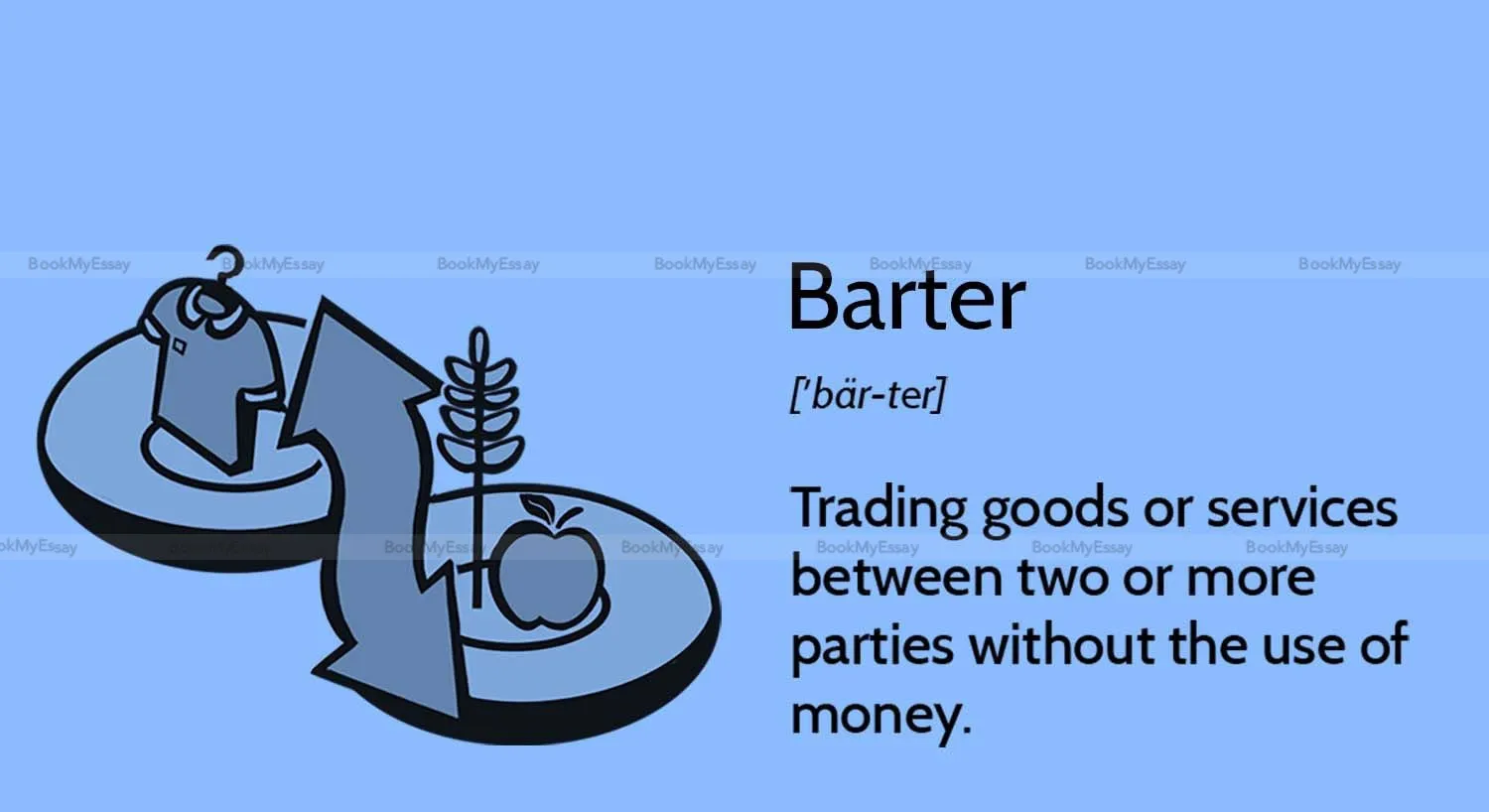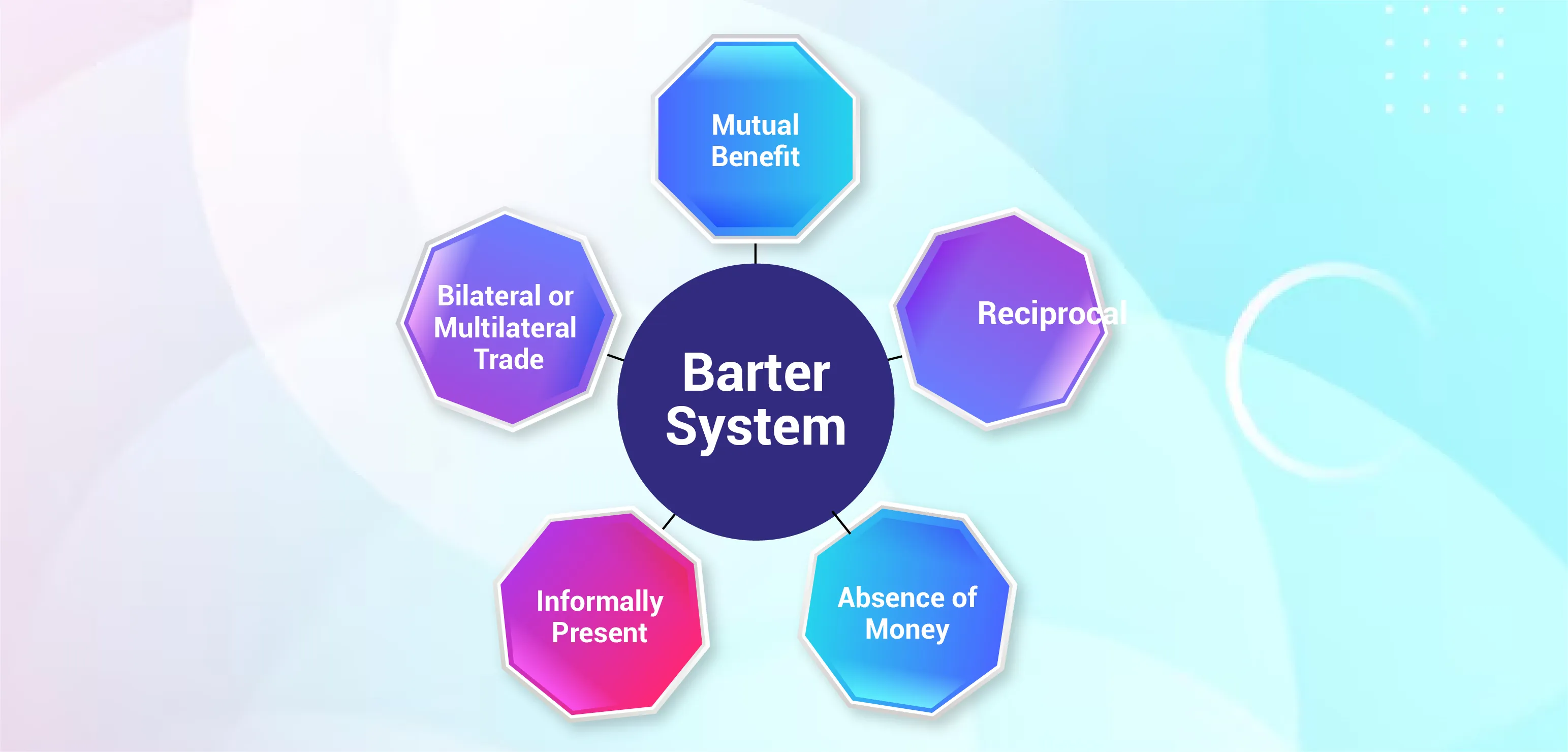Barter System
In the realm of business communication assignments, delving into the historical roots of trade unveils the Barter System. Originating before the advent of currency, this system involved the exchange of goods and services directly between parties. Business Communication Assignment Help serves as a valuable resource for students navigating the complexities of elucidating this economic precursor. Understanding the intricacies of barter transactions, where negotiation and communication skills played pivotal roles, underscores the importance of effective business communication. Unraveling the evolution from barter to modern currency systems unveils the integral role of communication in shaping economic paradigms. In crafting assignments, students can explore the socio-linguistic aspects of barter, showcasing the interplay between language, negotiation, and trade—an invaluable lesson in the annals of business communication.
What Is The Barter System?
The barter defined as a method of exchange where goods and services are directly traded without a medium of exchange like money, is an ancient economic practice. In a barter system, individuals exchange items they possess for goods or services they need, relying on mutual agreement and necessity. This system predates the introduction of currency and played a crucial role in early human societies. Barter transactions involve a double coincidence of wants, where both parties must desire what the other offers. While the barter system served as a foundational economic model, its limitations, such as the difficulty in finding suitable exchange partners, eventually led to the development of monetary systems for more efficient and widespread trade.

How Does The Barter System Differ From Monetary Exchange?
The Barter system and Monetary exchange represent distinct modes of trade, each with unique characteristics. In the Barter system, goods and services are directly exchanged without the use of money, relying on mutual agreement between parties. This method can be inefficient and complicated due to the need for a double coincidence of wants. Conversely, Monetary exchange involves the use of currency as a medium, streamlining transactions and overcoming the limitations of Barter. Assignment Writing Help Tutors can elucidate these differences, emphasizing the historical progression from Barter to Monetary systems. Their expertise enables students to grasp the intricacies of economic evolution, providing comprehensive insights into the challenges and advantages of both methods.
Why Was The Barter System Used In Ancient Societies?
The barter system prevailed in ancient societies due to the absence of a standardized currency. Five important facts about business assignment help elucidate this historical practice. Firstly, bartering facilitated trade when there was a lack of universally accepted medium of exchange. Secondly, goods were exchanged based on their intrinsic value, promoting a system reliant on mutual agreement. Thirdly, the barter system thrived in communities where specialized currencies were non-existent. Additionally, business assignment help underscores the significance of barter in fostering social relationships, as transactions often involved direct communication and negotiation. Lastly, the barter system persisted until the advent of currencies, marking a crucial transition in economic history. Understanding these historical aspects is essential for comprehending the evolution of economic systems and the role of currency in shaping modern commerce.
What Are The Advantages Of The Barter System?
In the realm of economics, the barter system, despite its historical roots, presents unique advantages, particularly for those seeking Assignment Help in UK. In a barter exchange, goods and services are traded directly, eliminating the need for a common medium of exchange like money. This fosters a sense of community and cooperation, key elements in collaborative academic environments. For UK students seeking assignment help, the barter system could facilitate knowledge exchange and skill-sharing among peers. Additionally, the system allows for flexibility in negotiations, enabling individuals to tailor transactions to their specific needs. By exploring the advantages of the barter system, students in the UK can discover innovative ways to collaborate and enhance their academic journeys through resourceful exchanges.
How Does BookMyEssay Explore The Historical Aspects Of The Barter System In Its Assignment?
BookMyEssay delves into the historical dimensions of the barter system in its assignment by meticulously tracing the evolution of this ancient method of trade. The expertly crafted content explores the roots of barter in prehistoric societies, where goods and services were exchanged directly. The assignment unravels the historical significance of barter as a precursor to modern currency systems, shedding light on its challenges and advantages. BookMyEssay skillfully navigates through various historical periods, showcasing how barter evolved with cultural and economic shifts. The analysis encompasses the impact of barter on early civilizations, highlighting its role in shaping trade practices. By providing a comprehensive historical backdrop, the assignment not only informs about the barter system but also enriches the understanding of economic evolution across different eras.







 3 Bellbridge Dr, Hoppers Crossing, Melbourne VIC 3029
3 Bellbridge Dr, Hoppers Crossing, Melbourne VIC 3029




